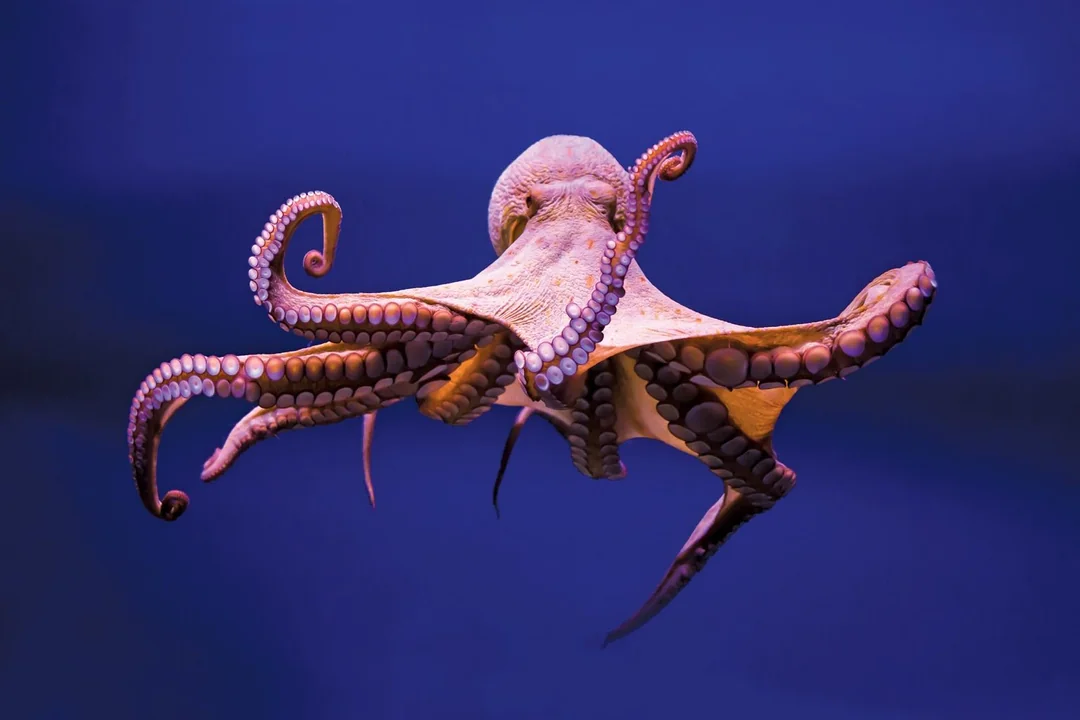Introduction
The ocean, a mysterious and vast expanse, is home to a myriad of fascinating creatures. Among these inhabitants, the octopus stands out as a particularly intriguing subject of study. With its unique physical attributes, remarkable intelligence, and captivating behaviour, the octopus is an exceptional example of nature’s creativity. This article examines the many facets of the octopus, exploring its anatomy, intelligence, defensive mechanisms, and ecological significance.
The Anatomy of the Octopus: Nature’s Ingenious Design
Octopuses belong to the class Cephalopoda, which includes squid and cuttlefish, and are part of the order Octopoda. One of their most distinguishing features is their eight arms, lined with sensitive suckers. Unlike most other creatures, octopuses lack a skeletal structure. This absence of bones allows them incredible flexibility, enabling them to squeeze through remarkably small spaces. Their bodies are covered in specialised skin cells called chromatophores, which allow them to change colour and texture, playing crucial roles in communication and camouflage.
The octopus’s nervous system is also noteworthy. While most of its neurones are distributed throughout its arms, the central brain retains immense processing power. This distinctive nervous system arrangement contributes to their advanced problem-solving abilities and behavioural complexity, which are considered among the most advanced in invertebrates.
Intelligence and Behaviour: The Astonishing Mind of the Octopus
The intelligence of octopuses is a topic of great interest among scientists. They have demonstrated remarkable problem-solving skills in both lab settings and the wild. Octopuses are known to manipulate objects deliberately, exhibit long- and short-term memory, and even use tools, such as coconut shells, for protection. Studies have shown they are capable of recognising individual humans and learning through observation.
Their curious nature leads them to explore their surroundings thoroughly, often resulting in extraordinary escapades from aquariums. Octopuses have been known to solve puzzles, open jars, and escape enclosures, highlighting their cognitive prowess. This intelligence is not just intriguing but provides vital insights into the evolution of intelligence in animals without a backbone.
Defensive Mechanisms: The Art of Survival
The octopus has evolved several extraordinary adaptations to evade predators, playing a critical role in its survival. Camouflage is perhaps the most well-known defence mechanism. By altering their skin’s texture and colour, octopuses blend seamlessly into their environment, making them nearly invisible to both prey and predators.
When camouflage proves insufficient, some species can eject ink, creating a smokescreen to confuse predators and facilitate a hasty retreat. Additionally, octopuses possess the remarkable ability to regenerate lost limbs, a crucial feature given the hostile environments they often inhabit. These defence strategies underscore the octopus’s position as a highly adapted and resilient marine species.
Ecological Significance: Contributors to Marine Ecosystems
Octopuses play a pivotal role in their ecosystems, acting as both predators and prey. Their diet primarily consists of crustaceans, molluscs, and small fish, controlling these populations and maintaining a balance within the marine food web. By preying on these species, octopuses contribute to the health and diversity of coral reefs and other marine habitats.
Moreover, as prey, octopuses are a vital food source for a variety of marine predators, including sharks, dolphins, and larger fish. This dual role highlights their importance in sustaining ecological equilibrium.
Conclusion
The octopus is truly one of nature’s marvels. Its unique anatomy, captivating intelligence, sophisticated defence mechanisms, and essential ecological role make it a subject of endless fascination and scientific inquiry. As we continue to explore and understand the mysteries of the ocean, the octopus stands as a symbol of the complexity and wonder of marine life. By appreciating and protecting these remarkable creatures, we ensure that future generations can continue to learn from and be inspired by the ocean’s enigmatic inhabitants.
Discover more from TheHubBuzz.com
Subscribe to get the latest posts sent to your email.

